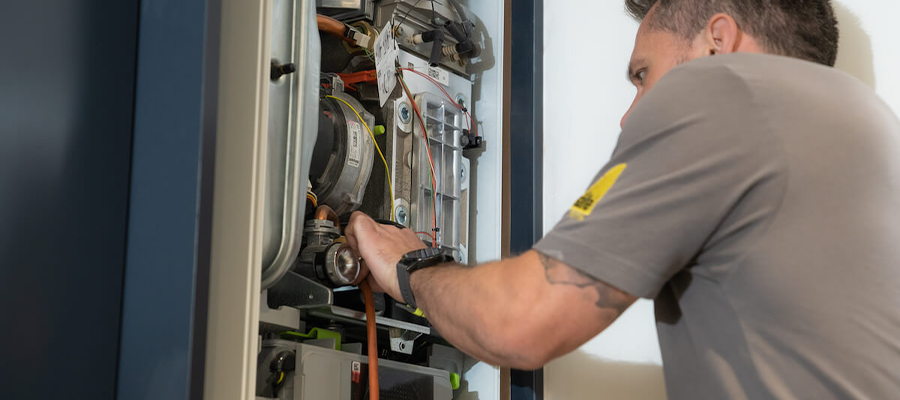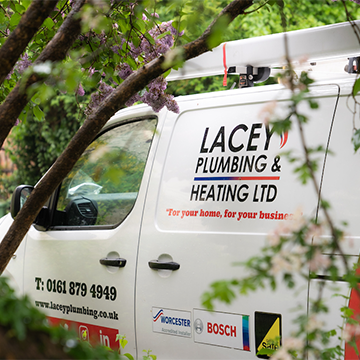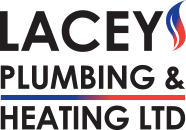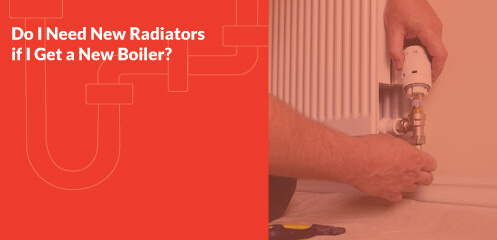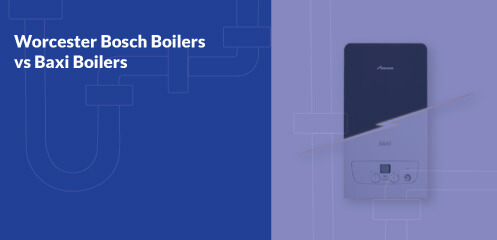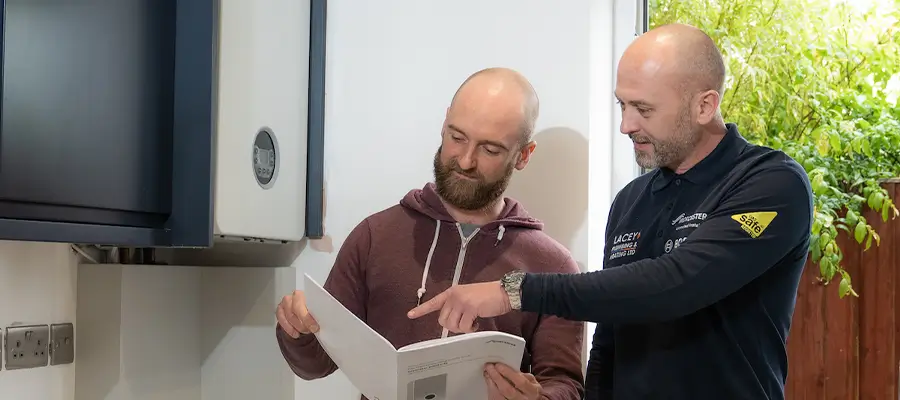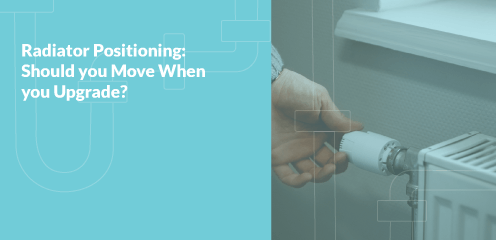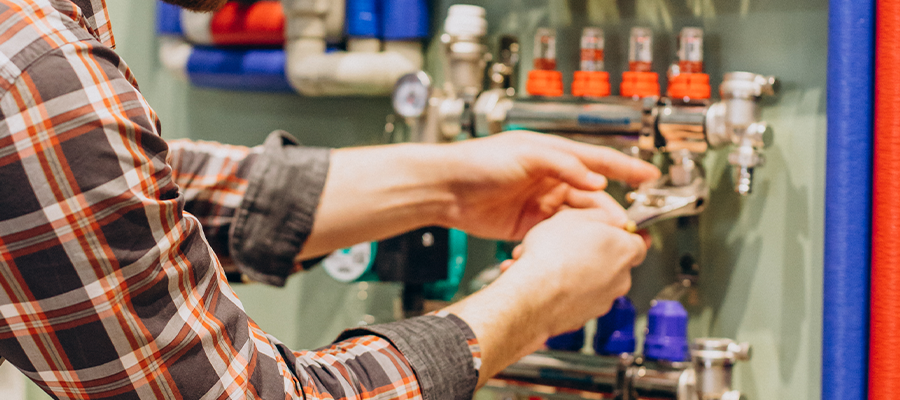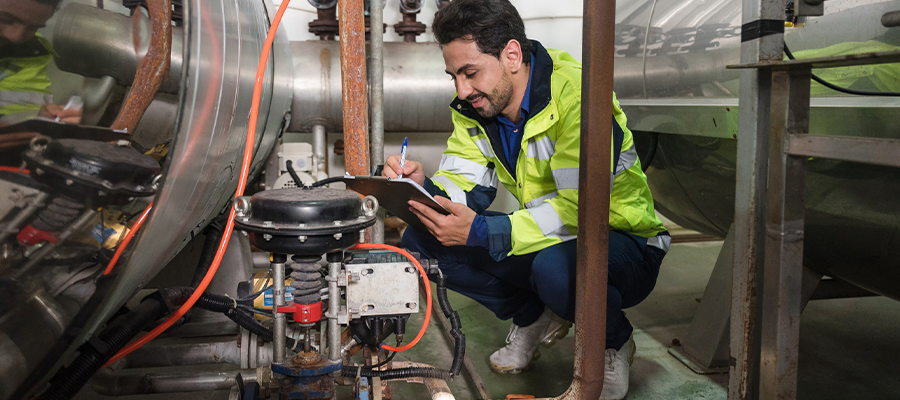Do Nest Thermostats Work with a Combi Boiler?
Nest thermostats are the perfect smart thermostats for modern homes and busy lives thanks to its learning capabilities that can reduce energy consumption and cut costs.
Nest thermostats are the perfect smart thermostats for modern homes and busy lives thanks to its learning capabilities that can reduce energy consumption and cut costs.
However, Nest is not always compatible with every boiler, which is why it is important to find out its compatibility first before you invest in the product.
Can you use a Nest thermostat with a combi boiler?
Yes, Nest thermostats can be used with combi boilers. They are becoming a popular smart thermostat choice across the UK not only thanks to how they are to use, but how easy they are to install too by a professional heating engineer or electrician.
The Nest thermostat uses a clever heat link which controls the boiler to communicate wirelessly with the thermostat.
Do all smart thermostats work with combi boilers?
No, not all smart thermostats will work with combi boilers. However, a lot of popular smart thermostats do work with modern boilers, including combi boilers.
There are a few factors affecting the compatibility between thermostats and combi boilers, including:
- The voltage of the boiler
- The boiler manufacturer
- If the thermostat needs additional components
- The age of the boiler
Pros and cons of connecting a Nest thermostat to your boiler
Before you invest in a Nest thermostat, it’s worth considering the pros and cons.
Pros of connecting a Nest thermostat to your boiler
Energy efficiency
One of the biggest benefits of connecting a Nest thermostat to your boiler is its capacity to save energy. The device gains an understanding of your heating preferences and modifies the temperature where necessary to maximise heating cycles and reduce energy use.
Learning capabilities
The Nest thermostat is different to many regular thermostats due to its ability to learn. It can precisely predict your preferences and analyse your temperature changes over time by using its sophisticated algorithms.
Remote access and control
The Nest thermostat allows you to easily control your home's heating through your mobile phone. This means, no matter where you are, you can easily turn on your heating or regulate the temperature. This means you don’t need to be at home to manually turn on your heating or wait for the thermostat to trigger your boiler.
Cons of connecting a Nest thermostat to your boiler
Upfront cost
The Nest thermostat is more expensive up front compared to other, more traditional thermostats. Although it can result in long term savings, the initial cost can prevent some from investing in the product.
Compatibility limitations
As we’ve mentioned, your boiler may not be compatible with the Nest thermostat. Even though it is compatible with most combi boilers, the age and make can determine whether or not you can connect a Nest thermostat with your boiler.
Some boiler manufacturers are also looking towards making their own smart thermostat, and so their newer models may only work with their own products.
Network limitations
A reliable internet connection is essential for using the Nest thermostat and you cannot access a lot of the features without this since it all works through Wifi connections to the boiler.
Some network connections may not be suitable for using the Nest app either. For example, Nest is not compatible with captive portal networks such as those in cafes and hotels.
Is your boiler compatible with a Nest thermostat?
As we’ve mentioned, the Nest thermostat is compatible with most combi boilers but it is a good idea to check if your boiler is compatible first before you order the device.
Nest have their own compatibility checker, which is a quick and easy to use survey that allows you to see if your boiler is compatible with either their Nest Learning Thermostat or Nest Thermostat E.
Our team of experienced heating engineers will also be able to help you to determine whether or not your boiler is compatible with a Nest thermostat. We have years of experience helping homeowners upgrade their heating systems to have a smarter and more energy efficient home, and we can also advise you on what thermostat may be better suited if your boiler is not compatible with Nest products.
How to connect a Nest thermostat to a combi boiler
We always recommend having a professional heating engineer to install and connect your Nest thermostat for you. This will help to ensure everything is connected correctly and safely, ready for you to use immediately.
Although the Nest thermostat usually comes with an instruction manual, if you don’t know your way around your boiler and its wiring, you could risk damaging your boiler and the Nest thermostat, as well as potentially causing harm to yourself.
Some of the steps included in connecting a Nest thermostat include:
- Turning off the mains power
- Understanding and connecting the wiring from the heat link
- Connecting the control panel to the heat link
- Installing the thermostat
If you have bought a Nest thermostat and would like to have it installed for you, or you’re not sure if your boiler is compatible with Nest products, get in touch with our professional team today to find out how we can help you with your smart heating requirements.
